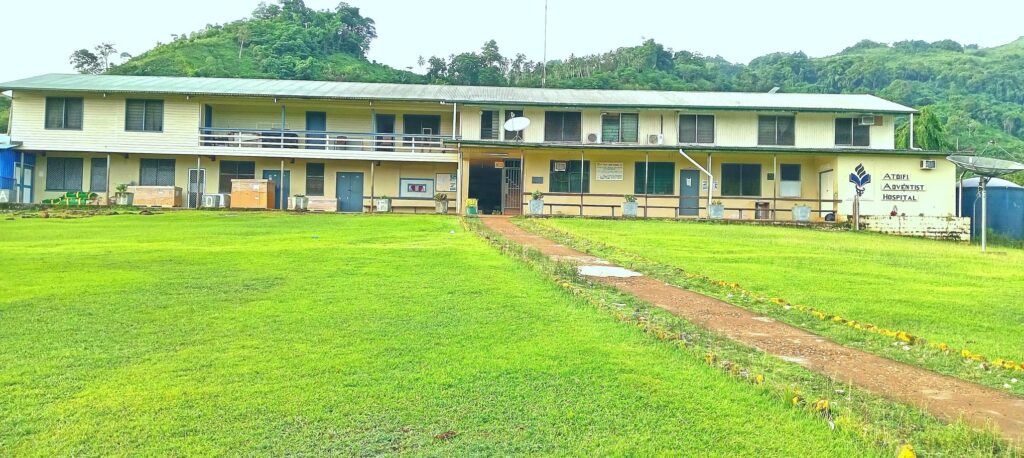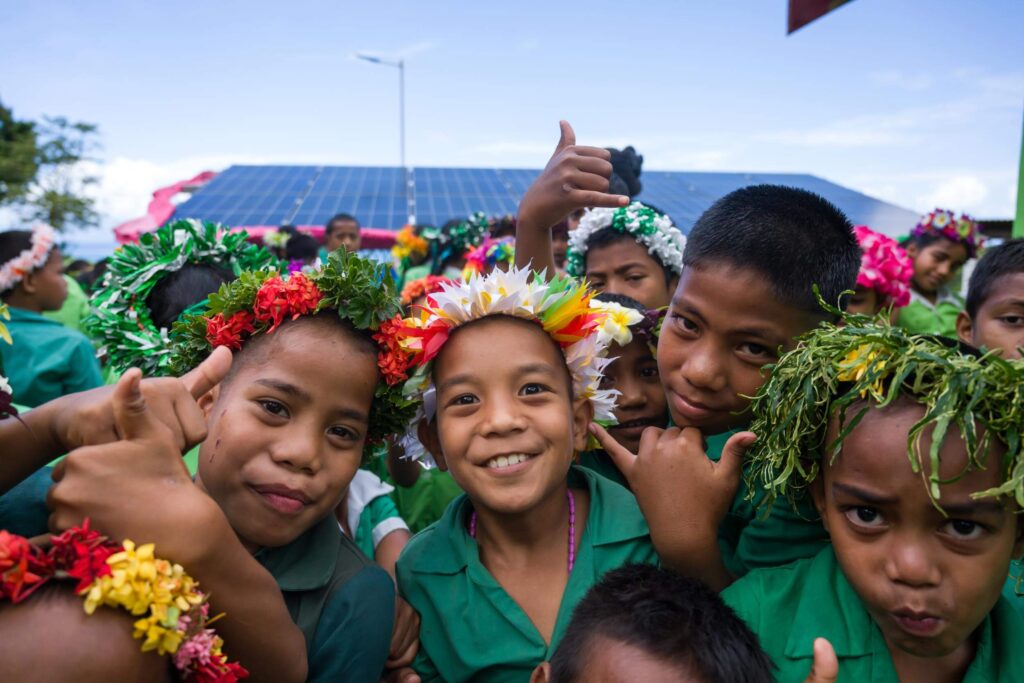From fishers on Solomon Islands’ Savo Island to coffee farmers in Timor-Leste, renewable energy is opening new pathways for income, entrepreneurship and stronger local economies. With reliable, affordable power, communities can run businesses, improve services and create jobs that build resilience over the long term.
As we continue our countdown to #COP30, we’re highlighting projects supported by the Australian Government through REnew Pacific and earlier pilots under the Business Partnerships Platform’s Off-Grid Renewable Energy Partnerships. Together, they demonstrate how clean energy is powering both prosperity and essential services across the Pacific and Timor-Leste.
In Vanuatu, a REnew Pacific partnership led by the Global Green Growth Institute (GGGI) is bringing clean energy, safe water and new livelihoods to rural communities across Santo, Paama, Tanna and Malekula. Over 4,700 people will benefit as diesel pumps are replaced with solar-powered water systems and 24 health centres and schools are equipped with reliable solar and battery storage. The project will also create around 40 green jobs, training local people in technical maintenance and financial management to ensure sustainability. By cutting costs, boosting resilience and reducing emissions, it is helping Vanuatu achieve its goal of universal access to clean, renewable energy. Find out more here.
In Vanuatu’s Tafea Province, the new Fixim Sola training program is empowering local communities to tackle solar waste while creating jobs and building skills. Led by the University of New South Wales with local partners, 48 participants, including 18 women and four people with disabilities, recently took part in two weeks of hands-on solar repair training – with more to come. The partnership is helping people like Jocelyn Iaioha, a single mother aiming to launch her own solar business, and Roy Daniel, a police officer maintaining the province’s emergency radio system, to gain the knowledge and tools to keep solar systems running. By building community repair hubs and future school programs, the project is supporting a circular economy for solar while opening new livelihood pathways across Vanuatu. Find out more about the program here – and hear from Jocelyn and Roy about the training below:
In Papua New Guinea, where just 13 percent of people are connected to the grid, a partnership with Sola Paygo and MiBank is accelerating access to clean energy while creating new jobs and livelihoods. Through community roadshows, locally-based technical support and a tailored solar loan product, more than 7,000 households now have affordable, reliable power – many for the first time. Women employed and trained as “Solar Stars” are leading training and technical support, building community awareness of operations and maintenance issues and ensuring sustainability. With almost all customers reporting savings or increased income thanks to solar, the initiative is showing how renewable energy can light homes, power businesses and fuel economic growth across PNG’s remote provinces. Find out more here.
On Solomon Islands’ Savo Island, a partnership with Archipelago Energy is piloting a new model to bring renewable energy to communities that have never had electricity before. Home to 3,000 people, the island is testing how fish trading – a key livelihood activity for 80% of households – can power community services like schools and clinics while also funding household solar kits. Early demonstrations have seen dozens of families trial affordable solar systems, and a digital payment platform and financial literacy training is being rolled out. By linking clean energy with local enterprise, the project is building a blueprint for sustainable electrification and stronger island economies across the region. Find out more here.
In Timor-Leste, where coffee supports more than a third of households, a partnership with Engineers Without Borders Australia, Raw Material and Mara Mresa is using solar power to transform how coffee is produced. New renewable-powered processing hubs in two off-grid communities are improving bean quality for the global specialty market, opening higher-value income streams for farmers and creating new local jobs. By reducing reliance on diesel and turning coffee hubs into multi-purpose energy centres for households, the initiative is helping rural families build stronger, more sustainable livelihoods. Find out more here.
These clean energy partnerships powering prosperity are all part of the Pacific Climate Infrastructure Financing Partnership (PCIFP), a $350million initiative for climate infrastructure in the region delivered by the Australian Government’s Australian Infrastructure Financing Facility for the Pacific (AIFFP) and implemented by Palladium.
Follow along each week as we share a new story on the road to Belém.



